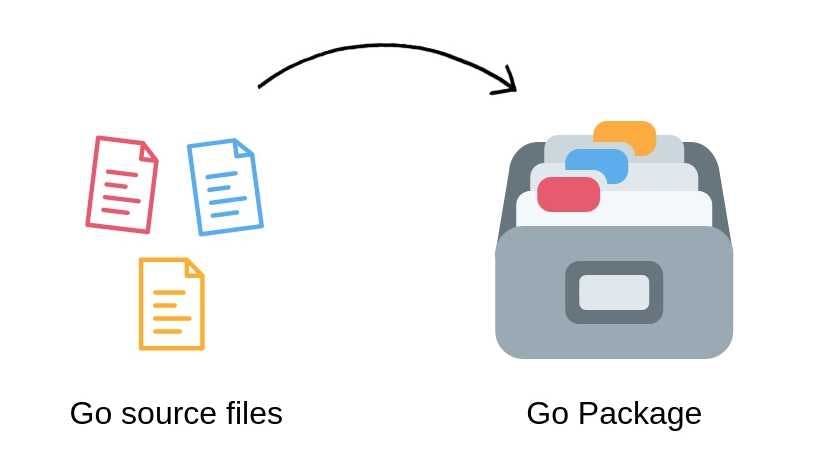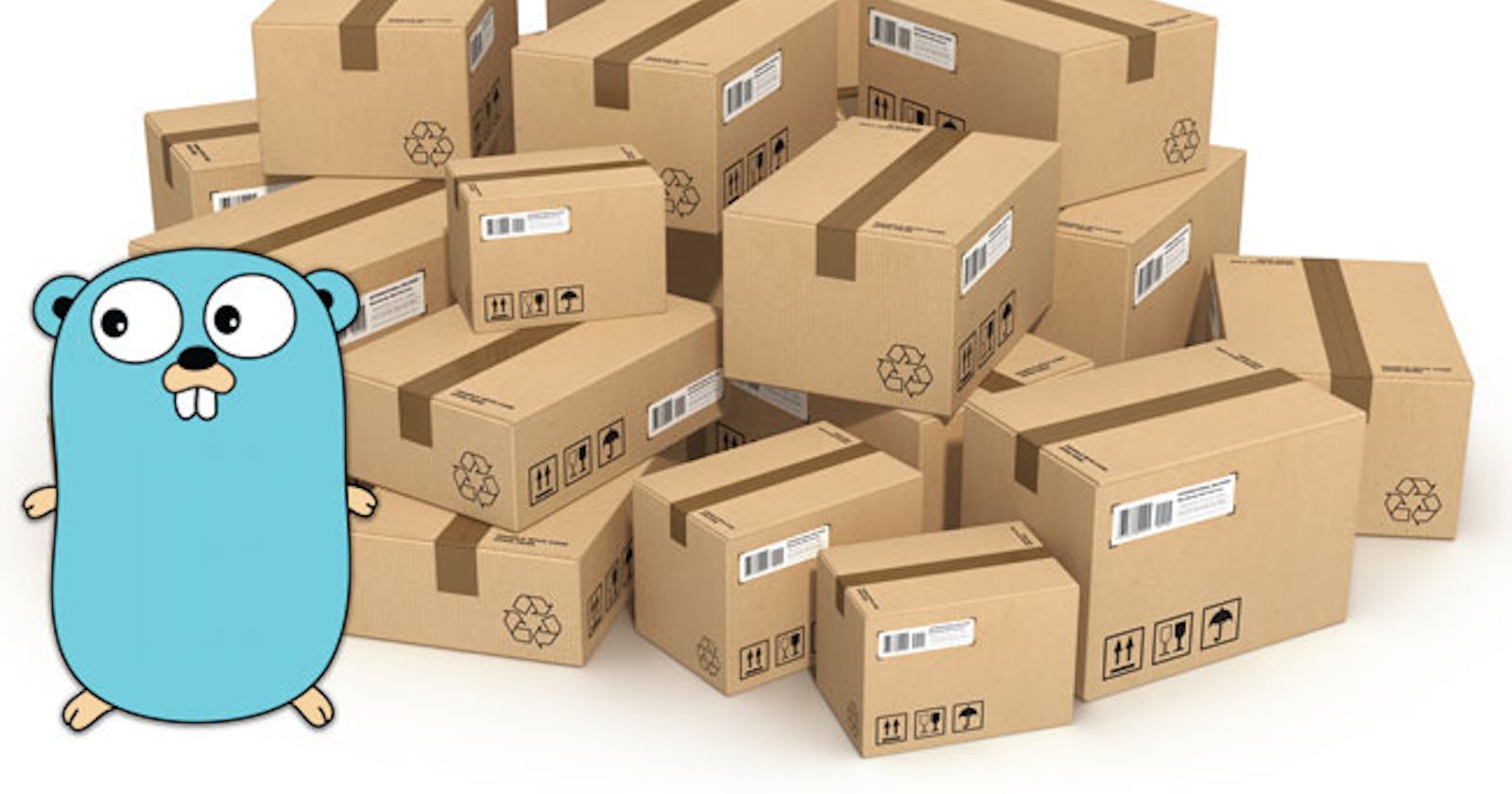Packages
All Go programs are organized into groups of files called packages, so that the code has the ability to be included in other projects as smaller reusable pieces.

Let’s look at the packages that make up Go’s http functionality in the standard library which contains a series of related files with the .go extension.
net/http/
cgi/
cookiejar/
testdata/
fcgi/
httptest/
httputil/
pprof/
testdata/
Every Go source file belongs to a package. The package declaration must be the first line of code in your Go source file. All the functions, types, and variables defined in your Go source file become part of the declared package.
package <packagename>
Package-naming convention
The convention for naming your package is to use the name of the directory containing it.
When naming your packages and their directories, you should use short, concise, lowercase names, with no under_scores or mixedCaps. They are often simple nouns, such as:
time(provides functionality for measuring and displaying time)list(implements a doubly-linked list)http(provides HTTP client and server implementations)
Package names may be abbreviated when the abbreviation is familiar to the programmer. Widely-used packages often have compressed names:
strconv(string conversion)syscall(system call)fmt(formatted I/O)
Keep in mind that a unique name is not required because you import the package using its full path.
The main package and main() function
Go programs start running in the main package. It is a special package that is intended to be compiled into a binary executable.
The main() function is a special function that is the entry point of an executable program. Let’s see an example of an executable program in Go.
// Package declaration
package main
// Importing packages
import (
"fmt"
)
func main() {
fmt.Println("Hello, world!")
}
go run main.go
# Output
Hello, world!

